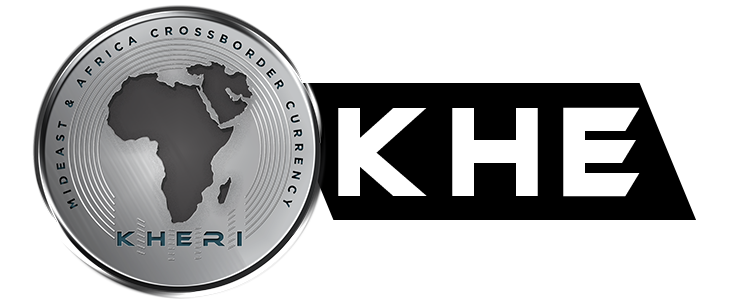KHERI BLOCKCHAIN
Decentralizing and Democratizing a Regional Currency
through collaboration and Blockchain Technology
KHERI, the decentralized and permissioned blockchain protocol, operates on a
proof-of-stake consensus mechanism and introduces its native cryptocurrency - KHE.
This innovative blockchain solution aims to revolutionize the financial landscape of Africa and the Middle East.
The KHERI project highlights the urgent need for Africa as a continent to join forces with Middle Eastern countries to establish a unified cross-border cryptocurrency.
By leveraging the blockchain technology and adopting the developed and civilized crypto governance practices prevalent in the Middle East, the region can decentralize and democratize its currency while combating inflation caused by rogue governments and collusive commercial banks issuing arbitrary money and Central Bank Digital Currencies (CBDCs).
Furthermore, we explore the acceptability of a unified Africa and Middle Eastern cryptocurrency, driven by growth in technological infrastructure, increasing technology access through expanded internet connectivity, the huge young and vibrant African population, who desire to remain unbanked as they explore more effecient financial systems that give them control over personal finances.
Additionally, we examine how this unification will catalyze existing trade between the two regions and strengthen their economies, positioning them competitively in the global finance market.
THE KHERI BLOCKCHAIN

KHERI SPEC SUMMARY
KHERI will operate as a permissioned blockchain, meaning that participants and validators would be pre-approved or selected based on certain criteria. This approach enhances network security and ensures that validators are trusted entities within the specified region.
KHERI will utilize a Proof-of-Stake (PoS) consensus mechanism, where validators are chosen based on their stake in KHE tokens. PoS allows for energy efficiency and increased scalability compared to Proof-of-Work (PoW) algorithms.
KHERI will have its native cryptocurrency called KHE. It may adhere to a specific token standard designed for the project, allowing for seamless integration within the blockchain network.
KHE will have a predetermined maximum supply, and there would be no additional minting or creation of new tokens beyond this hard cap. This ensures scarcity and can contribute to the token’s value proposition and longterm stability.
KHERI’s permissioned blockchain architecture enables fast and secure peer-to-peer transactions. By leveraging the benefits of blockchain technology, KHERI ensures that transactions are validated and recorded in a transparent and tamper-resistant manner. This enhances transaction speed, reduces costs, and promotes trust among participants.
KHERI will enforce geographic limitations to confine validators within the specified region, aligning with the project’s objective of unifying Africa and the Middle East. Validators would need to meet specific criteria, such as being physically located within the region or having infrastructure established there.
.
To achieve fairness and decentralization, KHERI will implement a randomized algorithm to select validators from a pool of staked participants. This random selection process ensures that no single entity or group can control or manipulate the validator selection, promoting network integrity.
KHERI will employ robust cryptographic algorithms to ensure the security and integrity of transactions and sensitive data within the blockchain. Encryption techniques would protect the confidentiality and privacy of user information.
KHERI will strive to be interoperable with other blockchain networks or traditional financial systems, facilitating seamless asset transfer, crosschain compatibility, and integration with existing infrastructure.
KHERI could have a governance framework in place to facilitate decision making processes, protocol upgrades, and consensus rule changes. This framework may involve token holder voting, community governance models, or other mechanisms to ensure inclusivity and transparency.
KHERI DeApp & DeFi INTEGRATION
Decentralized Identity Management
Cross-Border Payments and Remittances
KHERI SMART CONTRACT APPLICATION
Automation of Contractual Agreements
Transparency and Trust
Conditional and Programmable Actions
Efficient Dispute Resolution
KHERI DEVELOPER INCENTIVES
Token Rewards
Royalties and Revenue Sharing
Hackathons and Developer Challenges
Developer Grants and Funding
Community Recognition and Reputation
Access to Ecosystem Resources

